*COVIDTOWN*
By the fourth performance of Urinetown: The Musical, members of the cast and crew had been ignoring flu-like symptoms for days. People were popping cough drops like tic tacs, but most people blamed allergies or the common cold. Only two shows remained in the run, and people wanted to finish the performances without interruption. Thoughts of Covid took a backseat. That Thursday night, when performer Rylan Holmes-Shields got home, they tested positive. By the next morning, four more cast members also tested positive. Wade Willis, the director, had to cancel the remaining shows.
But by that Monday, 18 people had tested positive in total— most in the cast and crew or people in close contact with them. By Tuesday, so many people had tested positive that Northwest Academy administration made the difficult decision to pivot to online learning for the remainder of the week. This outbreak was the school’s first since the pandemic began over three years ago. At least 48 students, teachers and staff were infected by the end of the week, with the majority of cases in the high school.
Holmes-Shields is one of many students who found the return to online school to be an unsettling flashback to the original Covid lockdown.
“Online school really stressed me out and affected my mental health,” he said. “I was also extremely sick so I made the decision to not participate. I was going to but it was just so stressful and confusing.”
Students and staff alike have an overwhelmingly negative recollection of online school, one that was only amplified by the past few weeks. The schoolwide return to distance learning has unlocked memories surrounding the pandemic, many of which were unpleasant.
In December 2019, the Covid pandemic began in Wuhan, China. Covid first appeared in the US on January 19th, 2019. The beginning of the pandemic for many Americans, however, was when the lockdown began in March 2020. Schools shut down. Parents took their kids out of daycare and began working from home. Corporate behemoths such as Google and Microsoft moved their employees online. Restaurants closed, some for good. The world was caving to this novel, deadly threat.
The country’s reeling people looked to the government for leadership. Then President Donald Trump and his administration brushed off the public’s concerns about the virus and downplayed the importance of masks. At one point, the former president encouraged people to inject bleach to counteract the spread of the virus. As people continued to die and the Trump administration downplayed the severity of the pandemic, Northwest Academy students and staff left school and moved online.
Chris Schuck, Head of School, was in Washington D.C. at the time. He was caring for his mother, who was undergoing emergency surgery for an aneurysm.
“On the flight home, I drafted the letter we eventually sent out to the school community, announcing our plans to pivot to distance learning,” said Schuck.
Once he was back, Schuck met with faculty and staff to prepare for the days that lay ahead.
These moments at the beginning of the pandemic happened fast but were defining to many students and staff. For Tamara Lion, Operations Manager at Northwest Academy, it was also the time when she lost her father to the virus. Her father was one of the early cases, back when doctors were still unclear on how to best treat it. Memories from that time still make Lion anxious.
“It was very painful,” said Lion. “He died alone, we couldn’t even see him.”
This tragedy was a shocking and painful introduction into what Covid is capable of. Her dad’s death brought her into a reality where the national healthcare system’s infrastructure broke against this unexpected adversary.
Siri Dorn, now a freshman, remembers feeling disbelief when online learning began. The school stayed online until May 2021, about 14 months later. For Dorn, online learning cut their sixth grade short and continued for almost all of seventh grade.
“[In] sixth grade they made an announcement right before the pandemic [saying that] we’re not gonna have school for a while,” said Dorn. “That was a realization of what was actually happening. I’d seen all this pandemic stuff [on the news, but] I was like, ‘It’s not going to come to the US.’”
At first, many were skeptical that in-person school would be disrupted at all, much less moved online for over a year. The pandemic was a true black swan event, and it’s easy to forget how little we knew in the early stages.
“At Club Cabaret, somebody on stage said, ‘This may be the last time we’re all in a room together,’ and I remember thinking, oh surely not,” said Julia Cain, Northwest Academy’s Director of College Counseling. “We were shut down two weeks later.”
Once people got over the disbelief, and started to set into the routine of online learning, many had trouble learning. Some struggled to get work done, many played video games or talked to their friends during classes and some skipped them entirely.
“I think being [in person] is so much better, because I did not pay attention at all during online learning,” said Theo McBride, a sophomore. “Everything was background noise. I would just play video games because I was so detached.”
This detachment also affected teachers. Some who struggled with teaching in front of a computer. Kelli Pennington, a photography teacher, had trouble keeping students engaged, as many students kept their cameras off when the video conference platform Zoom.
“There were also students who were missing and never showed up online and I could not judge them [for it],” said Pennington. “We were all just kind of stumbling through it.”
Teachers also struggled while they tried to learn how to teach classes in a completely new way. Joanne Kim, current Head of High School, who taught freshman English Humanities during the pandemic, encountered difficulties with the online format.
“Teaching [freshman] grade online was hard because ninth graders are already going through a huge transition from their last year in middle school to their first year in high school,” said Kim. “So it was challenging, also, because class time was so limited.”
Classes were divided — synchronous and asynchronous, which restricted the length of lessons and discussions.
“I remember feeling a lot of pressure, thinking ‘How are we going to get through all this text and the discussions I want to have?’” said Kim. “And the activities I want to do together — there was this feeling of crunch all the time.”
While many teachers recollected frustrations and difficulties during the pandemic, some looked at the experience in an optimistic light. David Berkson, an English and Theater teacher, feels satisfied with the work he did during the pandemic.
“I don’t know if I was successful,” said Berkson. “[But] I can look back at the work that I did with students and look at myself in the mirror and go ‘yep, that’s the best you could do.’”
Besides performances, other school traditions like retreats and graduation ceremonies were disrupted, to the dismay of students and staff alike.
“The 2020 graduation we managed to do in that hybrid format where students walked through an audio visual studio,” said Dan Dunning, who was Head of High School until the 2022-23 school year. “I was air high-fiving the graduates as they moved through the space in a really choreographed and highly distanced and masked environment. I felt glad to do everything we could do, but it was also surreal and strange and dystopian.”
This strange new reality brought changes to the way people interacted. During the pandemic, many people turned to online communities in place of their in-person ones. These communities were lifesaving for the many people that didn’t get to see anyone outside of their family.
“I got to get closer to people in my life who aren’t as geographically close to me,” said Kim. “I now have a weekly yoga class with my friends around the world. It happened because of Covid and stayed in spite of Covid.”
In addition to school, the pandemic disrupted activities that played a critical role in everyday life. People lost hobbies, picked up new ones, adopted new family traditions and found ways to cope. For Dorn, the pandemic marked the end of their time doing acrobatics, as they felt the activity just wasn’t the same online. Dorn still feels the loss of the social interaction that acrobatics gave them.
“I was doing acrobatics in this company for a really long time,” said Dorn. “We were doing it on Zoom, and it just made everything terrible. I regret quitting because it was really fun and connected me to my friends.”
Nonetheless, for many, the pandemic was also a time to try new things. Some baked bread, began going on walks around the neighborhood, or, like Dorn and McBride, started to draw more often. Since coming back in-person, however, many of those that picked up hobbies during the pandemic dropped them because they no longer had the extra time on their hands.
“I started doing yoga more frequently and knitting,” said Cain. However, like many, she discontinued these hobbies after coming back in-person.
Others, however, kept up their newly cultivated pursuits after lockdown ended. Edith Winkler, a school counselor, picked up gardening as a hobby during the lockdown.
“The pandemic provided me with the opportunity to delve into the world of gardening, finding solace and fulfillment in spending time outside in nature,” said Winkler. “This newfound hobby has continued to be a part of my life even after the pandemic, serving as a source of tranquility and personal growth.”
These new pursuits, such as knitting, gardening and drawing, helped people stay positive during the months of lockdown. Despite the immense hardship the pandemic inflicted, many still look back fondly on the pastimes they found during it.
The pandemic has changed how we connect with others, possibly permanently. Now that Northwest Academy is back in-person, students and teachers are getting used to the “new normal.” Isaac Schultz, a senior, believes that life will never go back to what it once was.
“I definitely think we’ve returned to a sense of normalcy regarding the pandemic, granted that normalcy now includes quarantining when sick,” said Schultz. “If I’d looked at the present from before 2020, I would have been very surprised by how much life has changed, but after experiencing years of pandemic life, this is probably as normal as it’s going to get.”
For many, this new normal includes wearing a mask; Northwest Academy now requires them in all-school gatherings. Some community members also go beyond school policy in wearing masks. For McBride, this decision depends on how many people are in a space.
“[I don’t wear a mask] all the time, but definitely when I’m in really crowded spaces,” said McBride. “I assess on a case by case basis [based on] how many people [are there and on] how well I know the people.”
While many still attribute numerous negative connotations to masks, one silver lining that Kim appreciates is how the pandemic standardized masking in Western countries. She no longer feels out of place for wearing a mask in public.
“I like that mask-wearing in the US has been normalized now,” said Kim. “In Asia it was pretty normal to wear a mask, due to the respiratory diseases that have gone through East Asia. I previously felt like an oddity if I did wear a mask [here].”
Berkson chooses to wear his mask when required, and emphasized that it’s important to mask in order to protect those around him. While people still get Covid, said Berkson the disease feels less serious than it used to.
“I got a positive Covid diagnosis right before the break, and it was no big deal,” said Berkson. “I mean, it was unpleasant, but it didn’t feel like, ‘this is a death sentence.’ There was this period where you felt like if you got Covid, it was gonna be a death sentence.”
For Schultz, Covid is not simply a struggle of the past, but a present concern.
“I have an interesting perspective, because I currently have Covid while I am writing this,” said Schultz in an email interview. “In that way, Covid is still very much a real thing, not a thing of the past.”
Despite the fact that getting a positive Covid test result is no longer “a death sentence,” the virus continues to pose threats to immunocompromised individuals and those with underlying health conditions, which is why school policy continues to encourage and support optional masking to protect at-risk populations.
Schuck said that he still keeps masks around for ease of access, even though his use of them has become more sparse over the past year.
“I will, on occasion, wear a mask in public and I keep a spare in the glove compartment of my car and the pockets of my sports coats just in case,” said Schuck. “Sometimes because it’s requested or expected… sometimes because a venue feels too much like a Petri dish for my tastes.”
Several others reported feeling more at risk in public. Lion and Dorn both said they still feel more uncomfortable in big gatherings and spaces than they used to.
“I still feel weird about being in a crowd,” said Lion. “It makes me uncomfortable now. There’s been times when I’ve been in a crowded restaurant, and all I could think is, ‘Oh my god, I hope I don’t get Covid.’”
The fear of contracting Covid wasn’t the only obstacle people faced in the return to in-person living. After nearly one and a half years of almost exclusively remote social lives, many had to relearn how to move through daily social interactions. In the months following the shift back to in-person learning, McBride said they had a harder time in social situations than they had pre-lockdown.
“It definitely was very uncomfortable to be around people, especially at the very end of social distancing,” said McBride. “I didn’t know when to speak. I didn’t know how much energy I should have. That manifested in anxiety for me [about] how I would come across.”
Holmes-Shields noted a massive swing in his social nature through the pandemic.
“When the pandemic started I was a happy extrovert,” he said. “I left the pandemic as a depressed introvert. I completely forgot how to socialize with other people.”
Eli Swartley, a freshman, found a dramatically changed social landscape when he came back to school.
“One of the things that had the biggest effect on me was that when online school happened, it shifted the social dynamic,” said Swartley. “People became friends with different people.”
After the lockdown, Rosalind Fell, a middle and high school dance teacher, sold all of her jigsaw puzzles because they took her back to the pandemic. By getting rid of the things that unlock that particular cache of memories, Fell is able to avoid thinking about lockdown whenever possible.
“I guess the only thing that would really trigger me would be having to complete a 1,000 piece jigsaw puzzle again,” said Fell.
Many of the people interviewed didn’t want to think about the lockdown and felt like it was something better left in the past. Some, however, believe recalling the pandemic is a crucial part of the healing process. Berkson was keen to unpack his struggles during the pandemic, despite their gravity, saying that he has now realized how important it is to share aspects of life that are often too painful to talk about.
“Covid was when I started saying the quiet parts out loud,” said Berkson. “I didn’t really want to hide the fact that my dad died because I wanted people to know that’s what Covid can do. What’s the point of not talking about the real stuff, right? I think that I got more honest [with] my community.”
Everyone had a different experience with the pandemic — some were bored beyond imagination, many got Covid and some even lost family. No one was left unaffected, and everyone has memories from that time that they’ve yet to address.
“I remember leaving on the last day [before lockdown],” said Katie Staggers, Chair of the English Department. “[I was] practically crying as I was going home, because I realized that we weren’t coming back.” She paused. “And I remember coming back, and the great feeling of seeing students in person for the first time, even masked — it kinda felt like the end.”
Reporting by the iJournalism class
Photos by Jasper Selwood

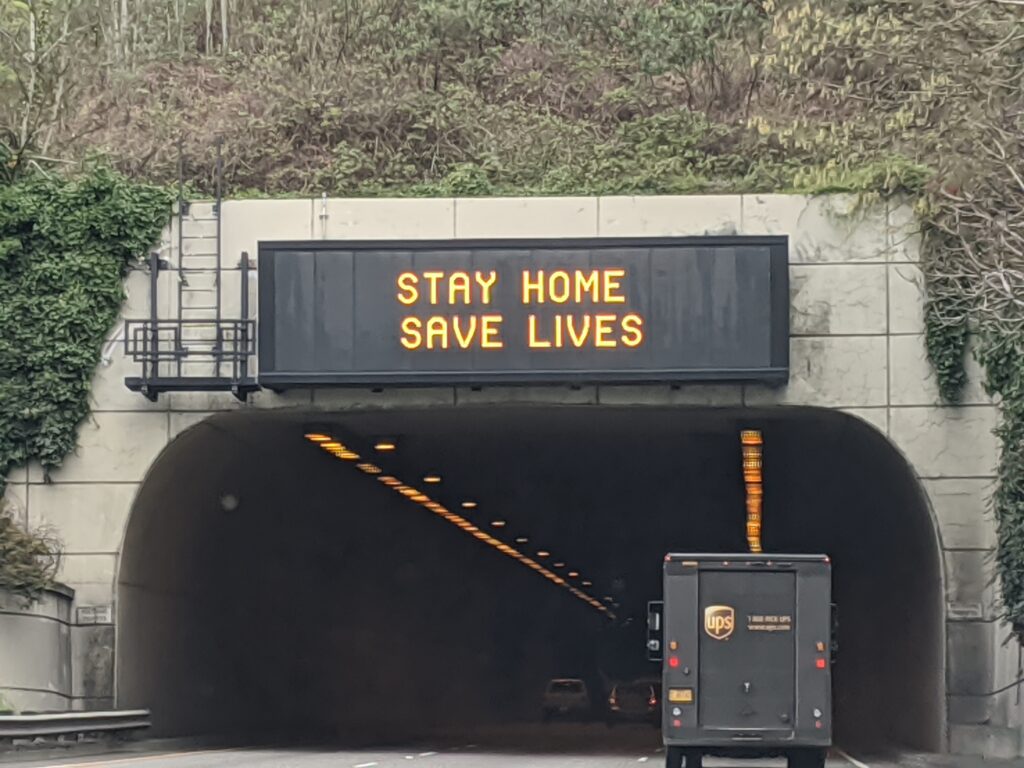
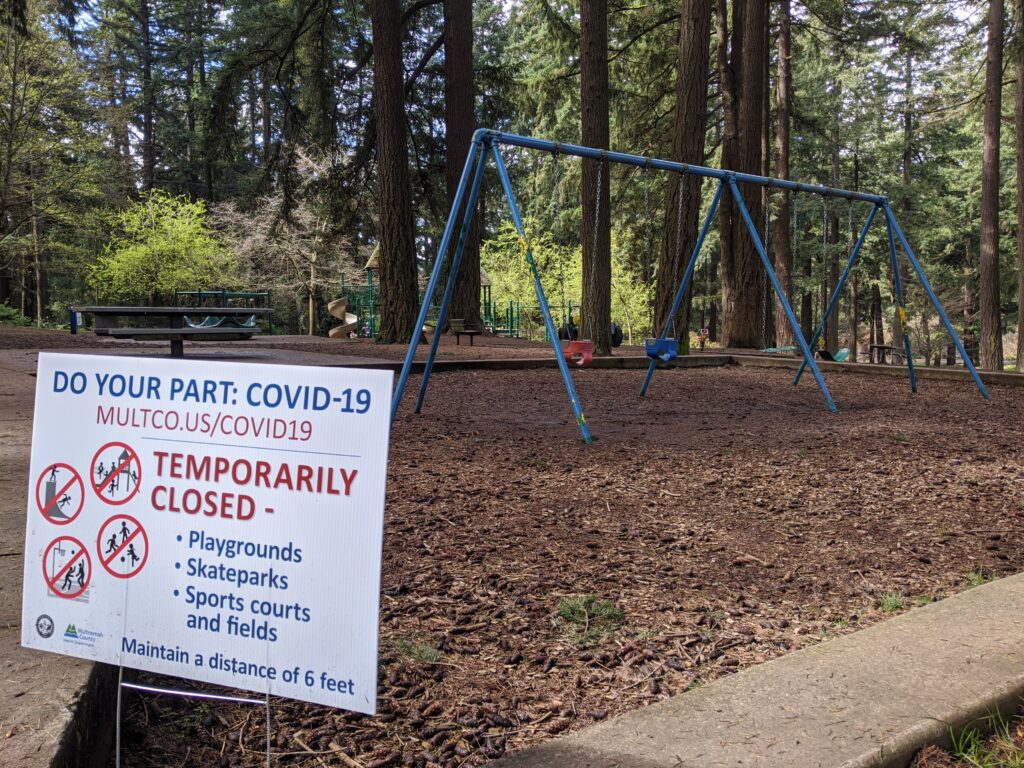
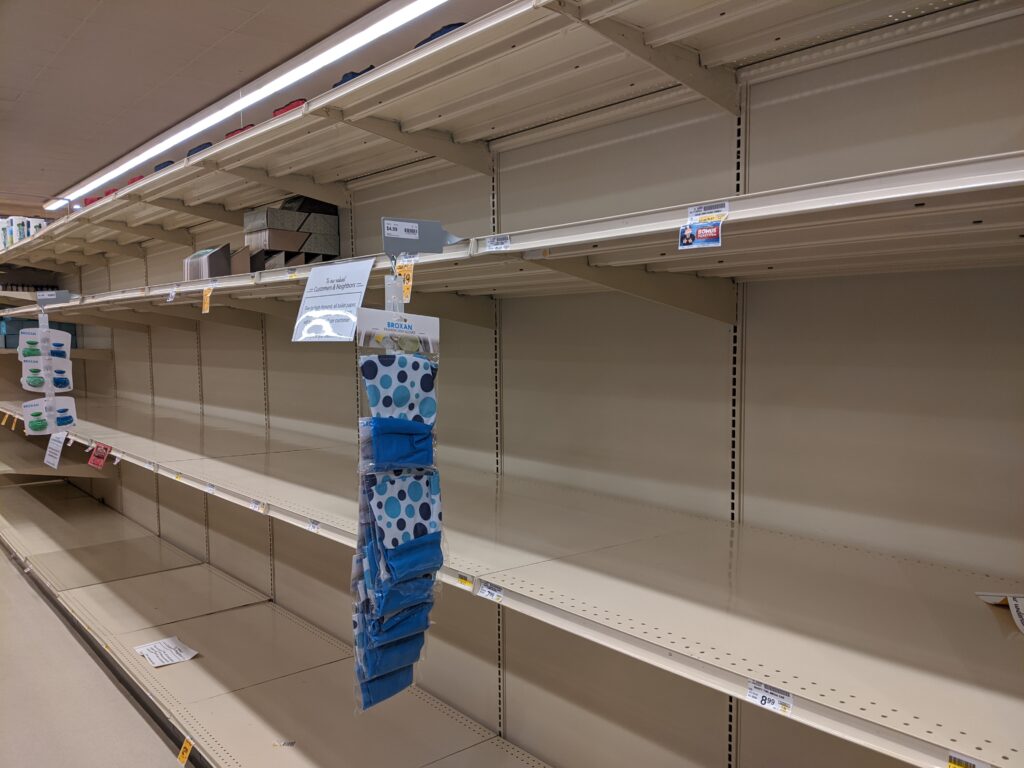

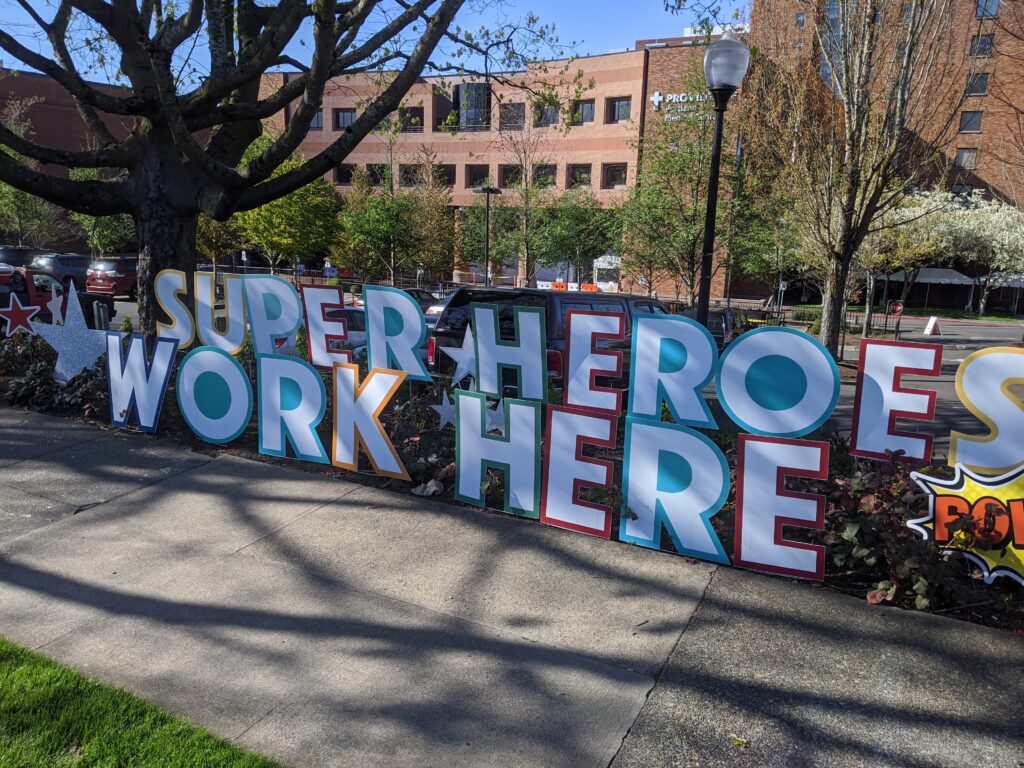

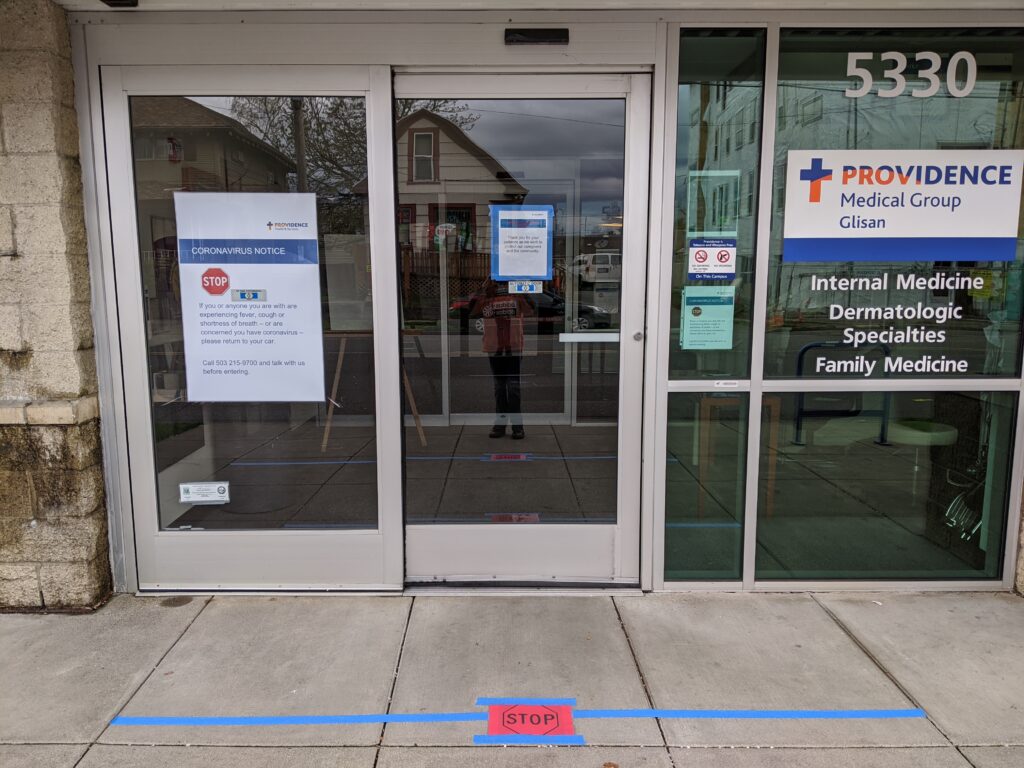

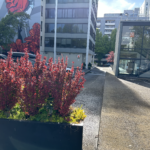
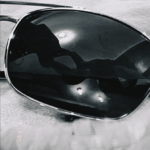
Leave a Reply